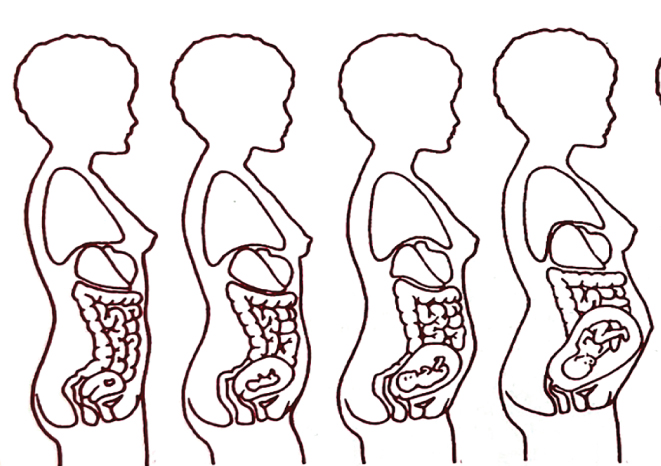There are about 3.6 million babies born in the U.S. each year, which is an average of 9,863 a day. Here’s a look at pregnancy and birth in the U.S.
Conception to birthdate
The length of the average pregnancy is approximately 266 days. As the exact estimate of the ovulation is usually not known, an estimate of the birthdate is made using the day of the last menstrual period. This is usually 14 days before ovulation, so 14 days are added to the figure of 266, making a total of 280 days, or 40 weeks.
Only about 5% of women actually give birth on the exact date they are due.
Calculating the birthdate
The usual way doctors estimate the expected delivery date is to count back three months from the first day of the last menstrual period and add seven days. For example, if the last menstrual period began May 12, the expected delivery would be Feb. 19 (May 12 minus three months + Feb. 12 plus seven days.
Table below shows conception (a) and birthdate (b).
Average baby
In the U.S., the average baby weighs just over 7 pounds and is 19½ inches long.
2022 statistics from the Centers for Disease Control and Prevention
Related Articles
Breakthrough therapies are saving lives. Can we afford them?
New public health center to come to Gilroy, expanding services to southern Santa Clara County
Amgen plows ahead with costly, highly toxic cancer dosing despite FDA challenge
‘Birthing friendly’ label requires little effort by hospitals
California doctor suspected of sexually assaulting patients
Number of births: 3,667,758
Birth rate: 11.0 per 1,000 population
Fertility rate: 56.0 births per 1,000 women ages 15–44
Percent born low birth weight: 8.60%
Percent born preterm: 10.38%
Percent unmarried: 39.8%
Mean age at first birth: 27.4
Number of vaginal deliveries: 2,486,963
Number of Cesarean deliveries: 1,178,066
Percent of all deliveries by Cesarean: 32.1%
Most moms are millennial
Millennials made up 29% of the population and millennial women accounted for 82% of births in 2016.
About 1 million new moms a year were millennials as of 2016.
One out of 3 (32%) female workers are mothers to children under the age of 18.
Moms have fewer kids
Fewer moms are having three or more children now than 40 years ago, and most don’t have more than two kids.
Sources: Pew Research Center, American Community Survey, Centers for Disease Control and Prevention, U.S. census.


